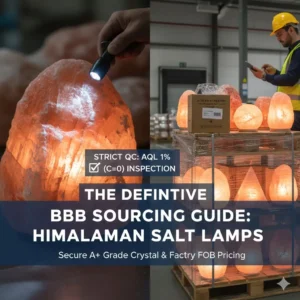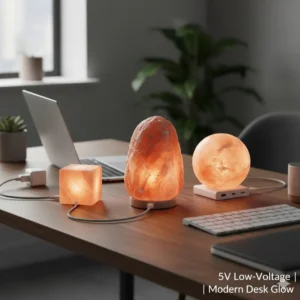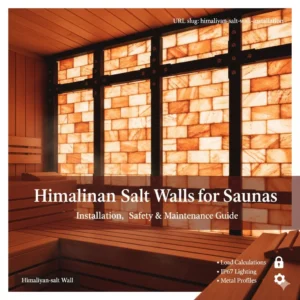Cooking on a Himalayan salt block relies on exact temperature control to sear food safely and evenly. These mineral slabs absorb and radiate heat uniquely, requiring tools that can read surface temperatures with precision.
For chefs and brands, mastering salt block cooking enhances flavor, presentation, and consistency across menus or product lines. An infrared thermometer—sometimes called a temperature gun—delivers instant, contact‑free readings to prevent cracking or uneven heat across the block.
This guide details how to choose a reliable infrared thermometer for salt block use, outlining key specifications, expert product reviews, and best‑practice recommendations to support precise, professional‑level cooking results.
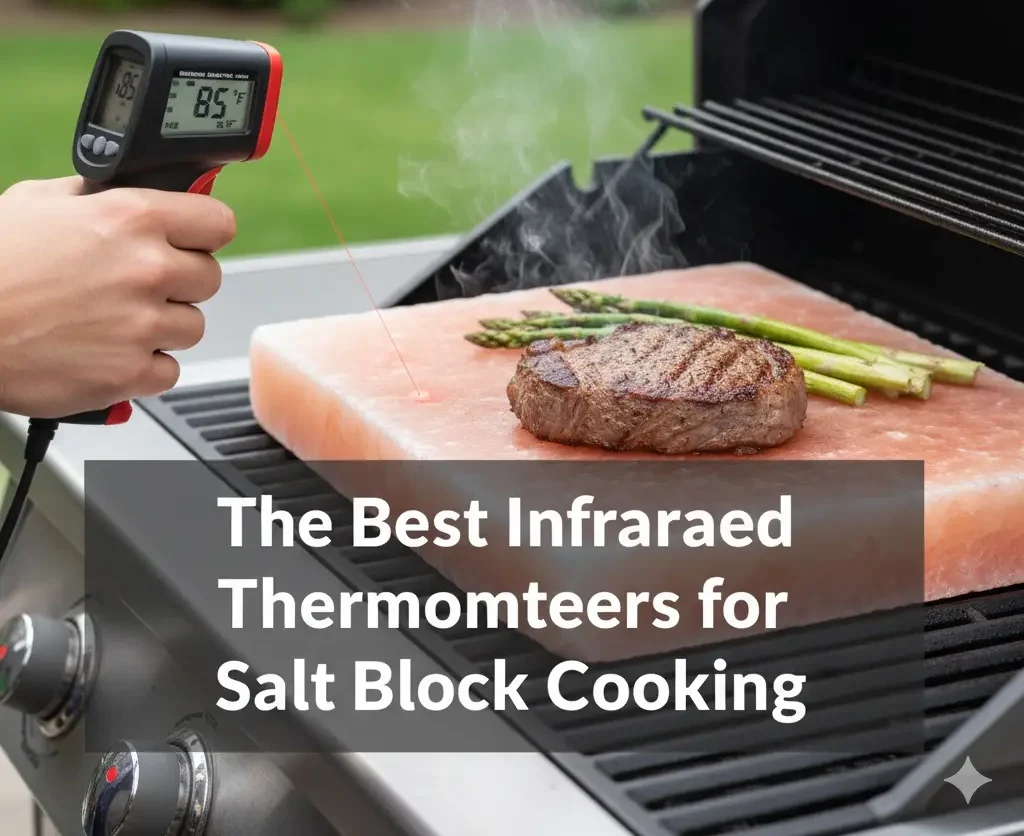
How to Choose the Best Infrared Thermometer for Salt Block Cooking
Temperature Range and Accuracy for Salt Blocks
Cooking on a Himalayan salt block demands stable and precise temperature control. Because these blocks often reach between 400°F and 700°F or higher, an infrared thermometer must operate reliably across that full searing range. Models such as the Fluke 62 MAX+ or Thermapen IR are engineered for high-heat conditions, giving users confidence that their cooking surface is consistently ready for searing.
Accuracy ensures every cut of meat or seafood cooks evenly without underheating or scorching. A fast‑response thermometer tracks real‑time temperature shifts, enabling fine heat adjustments before food makes contact with the block.
Emissivity and Distance‑to‑Spot Ratio
Salt reflects infrared energy differently than metal or ceramic surfaces, so emissivity plays a key role in measurement accuracy. Adjustable emissivity allows you to match readings to the block’s thermal properties, while fixed models with a setting near 0.95 are generally sufficient for routine cooking. For greater calibration flexibility, adjustable models like the Etekcity 630 provide precise tuning across varied surfaces.
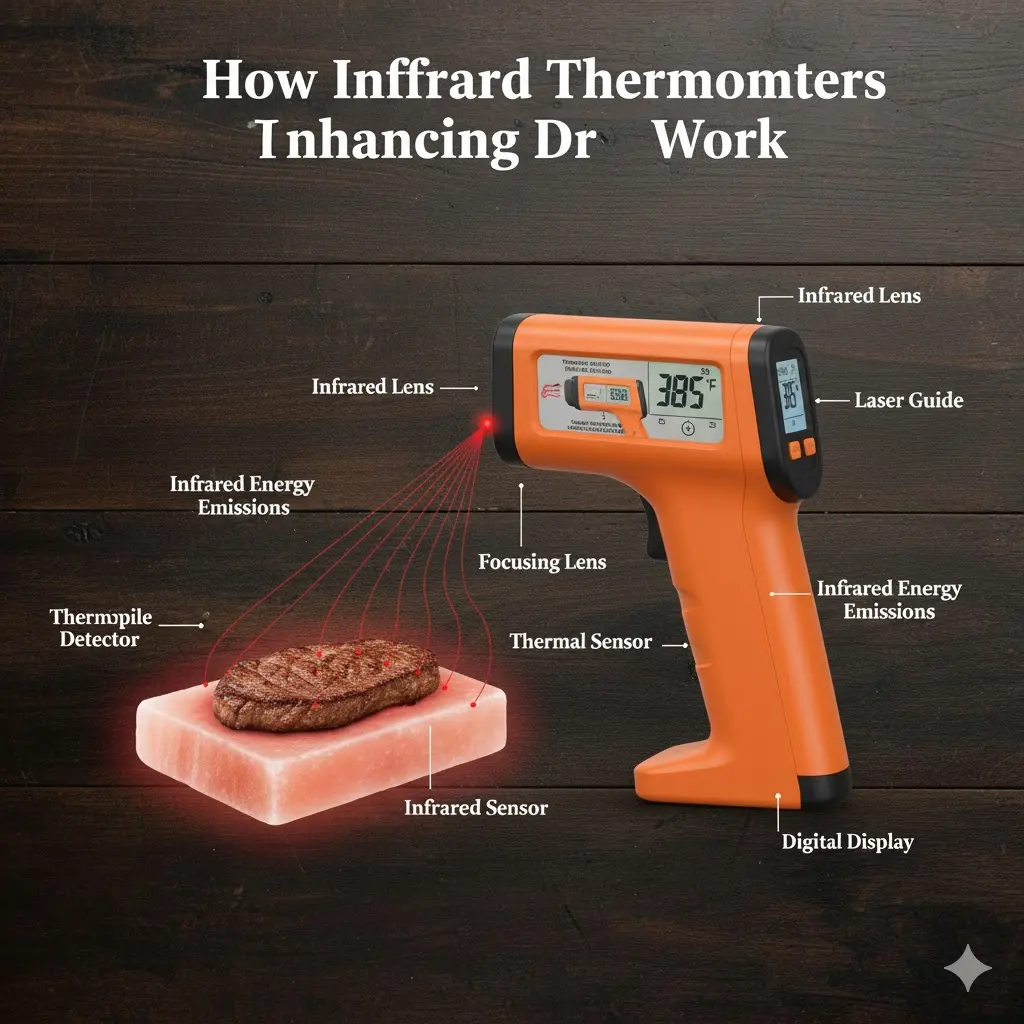
The distance‑to‑spot (D:S) ratio defines the measurement area relative to your distance from the surface. A higher ratio—typically 12:1 or above—lets you measure accurately from farther away. This ensures consistent readings while maintaining a safe distance from radiant heat or splatter, even when the salt block is fully heated.
Durability and Ease of Use in Kitchen Environments
Regular exposure to oil, steam, and direct heat requires a thermometer built for both durability and comfort. Tough housings made from polycarbonate or ABS resist drops and wear, while lightweight construction reduces strain during longer cooking sessions. Non‑slip grips can further improve handling near hot surfaces.
Simple controls, clear laser targeting, and backlit displays support quick, accurate readings under varied lighting conditions. Easy‑to‑clean designs and accessories such as holsters or lanyards enhance day‑to‑day usability. Together, these features ensure lasting reliability through repeated salt block searing sessions.
Premium Himalayan Salt Blocks for Culinary & Hospitality
Partner with Jilin Ever Creation to access 100% natural, FDA‑ and EU‑approved pink Himalayan salt blocks sourced from Pakistan’s Khewra Mine. Customize orders with exclusive shapes, private labeling, and packaging options designed to enhance dining, retail, and hospitality presentations worldwide.
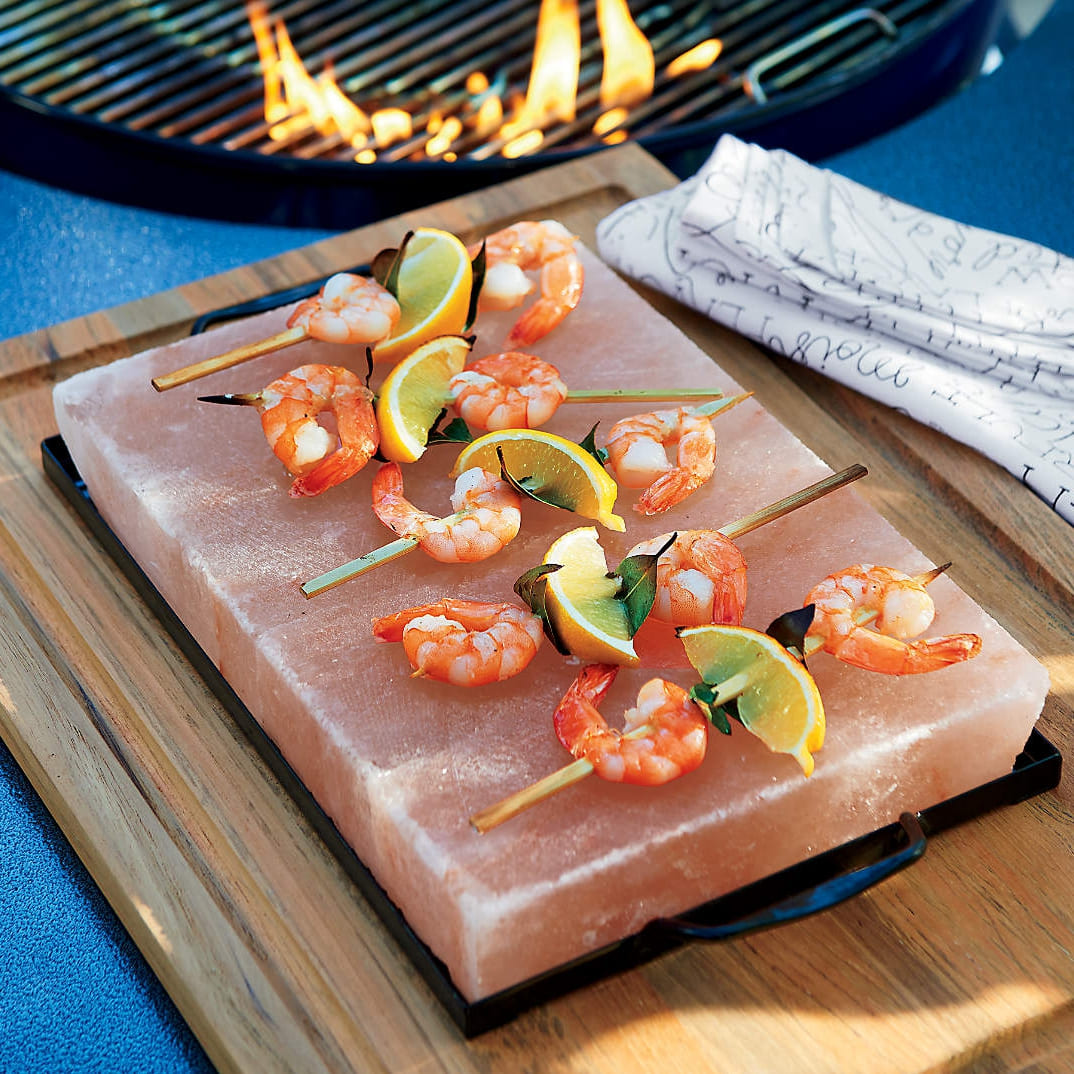
Review of the Top 5 Infrared Thermometers for Salt Block Cooking
Maintaining precise surface heat is critical when cooking on a Himalayan salt block—typically near 500°F for optimal searing. The right infrared thermometer or temperature gun provides quick, accurate readings to ensure both flavor and safety. Below are five top-rated models distinguished by accuracy, response speed, and durability in demanding kitchen environments.
Best Overall: Fluke 62 MAX+
The Fluke 62 MAX+ is a professional-grade infrared thermometer recognized for accuracy and durability. Its rugged housing withstands intense heat, oil, and frequent handling, while its rapid response enables chefs to verify surface temperature before food contacts the block. With a broad temperature range and precise targeting, it serves both professionals and dedicated home cooks.
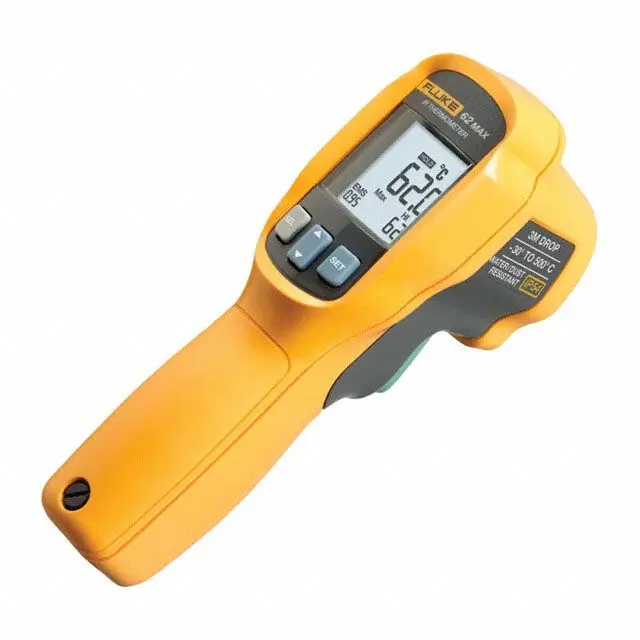
Its 12:1 distance-to-spot ratio allows for safe, accurate measurement from a comfortable distance. The device reads up to 1000°F, supporting consistent high-heat cooking and dependable searing performance.
Key Features:
- 12:1 distance-to-spot ratio for accurate targeting
- Temperature range up to 1000°F with ±2% accuracy
- Rugged polycarbonate and ABS construction
Pros:
- Professional-grade precision with fast response
- Highly durable and heat-resistant design
- Intuitive operation with clear laser guidance
Cons:
- Premium pricing relative to entry-level options
- Capabilities may exceed casual cooking needs
Best Value: Etekcity 630
The Etekcity 630 delivers reliable performance and flexibility at an accessible price, making it a strong option for occasional salt block users. Adjustable emissivity enables more accurate readings across varying surface types, including salt’s semi-reflective texture. Compact and lightweight, it maintains consistency under high-heat conditions.
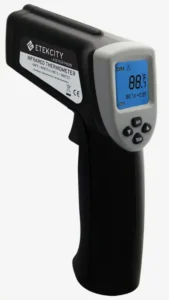
Its 12:1 optical ratio offers safe, precise measurement from distance. Although less rugged than professional models, it provides dependable functionality and solid value for the home kitchen.
Key Features:
- Adjustable emissivity for fine-tuned accuracy
- 12:1 distance-to-spot ratio
- Temperature range up to approximately 900°F
Pros:
- Strong value for price
- Useful features for home cooking
- Lightweight, portable build
Cons:
- Less impact-resistant than premium models
- Display visibility can diminish under bright light
Thermapen® IR: Precision & Versatility
The Thermapen IR combines an infrared sensor with a fold-out probe to measure both surface and internal food temperatures. It’s suited for chefs prioritizing precision, versatility, and food safety. Fast readings within seconds allow real-time adjustment when heating salt blocks or cooking proteins.
Engineered for professional kitchens, it features adjustable emissivity and robust construction for long-term durability. Its dual functionality justifies the higher investment among culinary professionals.
Key Features:
- Dual infrared and probe measurement modes
- Fast three-second response time
- Adjustable emissivity with 12:1 optical ratio
Pros:
- Measures both surface and core temperatures
- Meets professional food safety standards
- Durable and easy to sanitize
Cons:
- Higher cost than conventional consumer units
- Probe requires occasional calibration or maintenance
IDEAL Single Laser IRT: Straightforward Option
The IDEAL Single Laser IRT offers accurate performance in a simple, user-friendly design. Its fixed emissivity of 0.95 suits most cooking surfaces, including salt blocks. A 10:1 distance-to-spot ratio and visible targeting laser enable quick, consistent measurements from a safe distance.
Though lacking adjustable settings, it measures up to 752°F—adequate for most searing needs. Compact size and a clear digital display make it practical for occasional use and smaller kitchens.
Key Features:
- Fixed emissivity of 0.95
- Temperature range up to 752°F
- 10:1 distance-to-spot ratio
Pros:
- Easy, straightforward operation
- Affordable and dependable
- Compact and lightweight form
Cons:
- No emissivity adjustment
- Lower maximum temperature limit than advanced models
Emerging Option: Smart-Enabled Infrared Thermometers
Next-generation infrared thermometers increasingly feature smart technology. Some integrate Bluetooth connectivity for temperature logging and remote alerts, helping cooks manage multiple heat zones with precision. These innovations combine data tracking with real-time accuracy for connected kitchen environments.
While availability remains limited, smart-enabled models reflect the next step in culinary temperature control, designed for users who value both precision and digital integration.
Key Features:
- Wireless data synchronization via app
- High accuracy with rapid response
- Customizable alerts and display settings
Pros:
- Integrates with smart cooking ecosystems
- Provides detailed temperature records
- Modern, ergonomic design
Cons:
- Higher cost due to advanced technology
- Requires familiarity with companion software
Comparison Table of Top Infrared Thermometers
This table summarizes the most dependable infrared thermometers for salt block cooking. It compares temperature range, distance-to-spot ratio, emissivity, durability, and price—helping you identify the best combination of precision and value for your cooking style.
| Model | Temperature Range | Distance-to-Spot Ratio | Emissivity | Durability | Price Range | Best For |
|---|---|---|---|---|---|---|
| Fluke 62 MAX+ | Up to 1000°F | 12:1 | Adjustable | High (rugged) | Premium | Professional and frequent users |
| Etekcity 630 | Up to ~900°F | 12:1 | Adjustable | Moderate | Budget | Home cooks seeking value |
| Thermapen® IR | Up to 1000°F (infrared and probe) | 12:1 | Adjustable | High (professional grade) | Premium | Chefs requiring dual-sensor precision |
| IDEAL Single Laser IRT | Up to 752°F | 10:1 | Fixed (0.95) | Moderate | Low–Mid | Casual or occasional use |
| Emerging Model | Varies (high range) | Varies | Adjustable | High | High | Technology-focused users |
Each of these thermometers delivers reliable readings at the high temperatures required for salt block searing. The optimal choice depends on how often you cook, your working environment, and how much control you prefer over calibration settings.
Frequently Asked Questions About Infrared Thermometers for Salt Blocks
Why do I need an infrared thermometer for my salt block?
An infrared thermometer, often called a temperature gun, measures surface heat instantly without contact. Because salt block cooking depends on precise heat control for even searing and safety, these tools confirm that the block has reached the proper temperature before cooking begins.
Can I use a regular meat thermometer instead of an infrared one?
No. A traditional probe thermometer measures internal or liquid temperatures, not surface heat. Since salt blocks often exceed 500°F, only an infrared thermometer can safely and accurately track these high surface temperatures in real time.
What is the proper temperature range for salt block cooking?
For searing, salt blocks typically operate between 400°F and 700°F. Quality infrared thermometers easily cover this range, allowing cooks to verify when the surface is hot enough to sear without overheating or damaging the block.
How accurate are infrared thermometers on salt surfaces?
High-quality infrared thermometers provide accuracy within a few degrees on salt surfaces. Models with adjustable emissivity, such as those from Fluke or Etekcity, allow fine-tuning to account for salt’s reflective qualities, ensuring consistent heat control throughout cooking.
What other kitchen applications suit an infrared thermometer?
Infrared thermometers are also valuable for checking skillet preheat levels, candy or caramel stages, oil temperatures, and oven calibration. Their instant, contact-free readings make them ideal for any task requiring fast surface temperature assessment.
Final Thoughts
The Fluke 62 MAX+ remains the leading choice for chefs and professionals who demand precision and resilience under intense searing conditions. Its rapid response and durable build provide dependable temperature control through repeated high‑heat use.
For household kitchens, the Etekcity 630 offers impressive value by combining adjustable emissivity with a broad temperature range that easily covers salt block cooking requirements. It’s a well-balanced option for those seeking accuracy without the cost of industrial-grade tools.
Ultimately, an accurate infrared thermometer safeguards your salt block investment and ensures consistent searing results. With the right instrument, cooks gain precise heat management and greater confidence in every dish served.
Experience the quality firsthand with our trial order – an easy way to test these high-margin products with just a $500 investment. Get in touch to start your trial order today!


